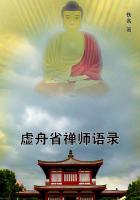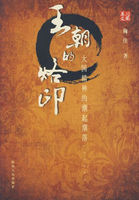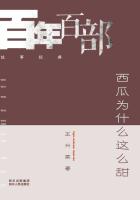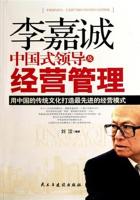"We shall make no reflections upon those by whom this wonderful discovery has been opposed,--the doubters and unbelievers,--however uncharitable they may have been to us; were it not that the efforts of genius are always impeded by drivellers of this description, and that we owe it to such men as Mr. Koenig and his Friend, and all future promulgators of beneficial inventions, to warn them that they will have to contend with everything that selfishness and conceited ignorance can devise or say; and if we cannot clear their way before them, we would at least give them notice to prepare a panoply against its dirt and filth.
"There is another class of men from whom we receive dark and anonymous threats of vengeance if we persevere in the use of this machine. These are the Pressmen. They well know, at least should well know, that such menace is thrown away upon us. There is nothing that we will not do to assist and serve those whom we have discharged. They themselves can seethe greater rapidity and precision with which the paper is printed. What right have they to make us print it slower and worse for their supposed benefit?
A little reflection, indeed, would show them that it is neither in their power nor in ours to stop a discovery now made, if it is beneficial to mankind; or to force it down if it is useless.
They had better, therefore, acquiesce in a result which they cannot alter; more especially as there will still be employment enough for the old race of pressmen, before the new method obtains general use, and no new ones need be brought up to the business; but we caution them seriously against involving themselves and their families in ruin, by becoming amenable to the laws of their country. It has always been matter of great satisfaction to us to reflect, that we encountered and crushed one conspiracy; and we should be sorry to find our work half done.
"It is proper to undeceive the world in one particular; that is, as to the number of men discharged. We in fact employ only eight fewer workmen than formerly; whereas more than three times that number have been employed for a year and a half in building the machine."On the 8th of December following, Mr. Koenig addressed an advertisement "To the Public" in the columns of The Times, giving an account of the origin and progress of his invention. We have already cited several passages from the statement. After referring to his two last patents, he says: "The machines now printing The Times and Mail are upon the same principle; but they have been contrived for the particular purpose of a newspaper of extensive circulation, where expedition is the great object.
"The public are undoubtedly aware, that never, perhaps, was a new invention put to so severe a trial as the present one, by being used on its first public introduction for the printing of newspapers, and will, I trust, be indulgent with respect to the many defects in the performance, though none of them are inherent in the principle of the machine; and we hope, that in less than two months, the whole will be corrected by greater adroitness in the management of it, so far at least as the hurry of newspaper printing will at all admit.
"It will appear from the foregoing narrative, that it was incorrectly stated in several newspapers, that I had sold my interest to two other foreigners; my partners in this enterprise being at present two Englishmen, Mr. Bensley and Mr. Taylor; and it is gratifying to my feelings to avail myself of this opportunity to thank those gentlemen publicly for the confidence which they have reposed in me, for the aid of their practical skill, and for the persevering support which they have afforded me in long and very expensive experiments; thus risking their fortunes in the prosecution of my invention.
"The first introduction of the invention was considered by some as a difficult and even hazardous step. The Proprietor of The Times having made that his task, the public are aware that it is in good hands."One would think that Koenig would now feel himself in smooth water, and receive a share of the good fortune which he had so laboriously prepared for others. Nothing of the kind! His merits were disputed; his rights were denied; his patents were infringed; and he never received any solid advantages for his invention, until be left the country and took refuge in Germany.
It is true, he remained for a few years longer, in charge of the manufactory in Whitecross Street, but they were years to him of trouble and sorrow.
In 1816, Koenig designed and superintended the construction of a single cylinder registering machine for book-printing. This was supplied to Bensley and Son, and turned out 1000 sheets, printed on both sides, in the hour. Blumenbach's 'Physiology' was the first entire book printed by steam, by this new machine. It was afterwards employed, in l8l8, in working off the Literary Gazette. A machine of the same kind was supplied to Mr. Richard Taylor for the purpose of printing the 'Philosophical Magazine,'
and books generally. This was afterwards altered to a double machine, and employed for printing the Weekly Dispatch.
But what about Koenig's patents? They proved of little use to him. They only proclaimed his methods, and enabled other ingenious mechanics to borrow his adaptations. Now that he had succeeded in making machines that would work, the way was clear for everybody else to follow his footsteps. It had taken him more than six years to invent and construct a successful steam printing press; but any clever mechanic, by merely studying his specification, and examining his machine at work, might arrive at the same results in less than a week.















